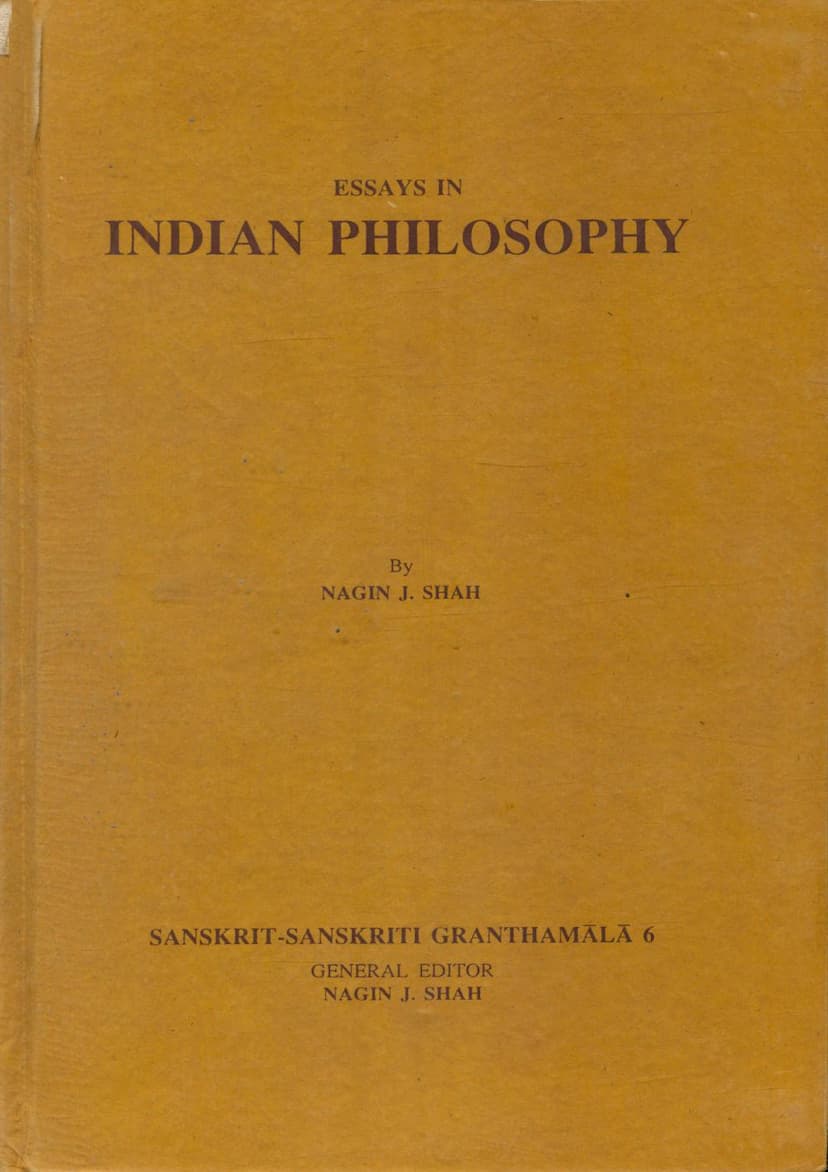Indian Philosophy
Added to library: September 1, 2025

Summary
This book, "Essays in Indian Philosophy" by Nagin J. Shah, presents a collection of nine scholarly essays exploring various significant topics within Indian philosophical traditions. The author aims to provide an in-depth, text-based analysis of these complex issues, offering coherent interpretations and impartial conclusions.
The book covers a diverse range of philosophical concepts, including:
-
The Nature of Time: The first essay delves into different Western and Indian philosophical perspectives on time, with a particular focus on the Jaina conception. It examines the debate on whether time is an independent substance or merely a manifestation of substance changes, ultimately arguing against the former view's soundness.
-
The Jaina Conception of Space: The second essay focuses on the Jaina understanding of space (ākāśa) as an independent, all-pervasive substance that serves as a universal container for all other realities.
-
Buddhist Nirvana: The third essay explores the Buddhist concept of nirvāṇa. It explains nirvāṇa as the cessation of suffering and the cycle of rebirth achieved by purifying the mind (citta) from adventitious impurities like attachment. The essay clarifies the Buddhist understanding of personality (pudgala) as a composite of five skandhas (personality factors) and discusses the analogy of extinguished fire to explain the state of nirvāṇa. It also highlights the potential confusion arising from philosophical systems using terms like 'ātman' and 'citta' interchangeably.
-
The Conception of Isvara in Patañjala Yoga and Early Nyāya-Vaiśeṣika: The fourth and fifth essays independently analyze the concept of Īśvara (God) in Patañjala Yoga and the early Nyāya-Vaiśeṣika schools, respectively. The author argues, based on textual analysis, that for Patañjali, Gautama, and Vātsyāyana, Īśvara is understood as a jīvanmukta (one liberated while living), a supreme spiritual teacher.
-
The Problem of Jñāna-Darśana: The sixth essay investigates the distinction between jñāna (knowledge, often involving thought or conceptualization) and darśana (vision, often referring to direct, thought-free perception or intuition) within Sankhya-Yoga, Buddhist, and Jaina philosophies. It explores how these traditions attribute these faculties to different principles (tattvas) or to the same principle (citta).
-
Essentials of Dharmakīrti's Theory of Knowledge: The seventh essay critically examines the epistemological framework of the Buddhist logician Dharmakīrti, focusing on his distinction between sensory experience and thought, his concept of svalakṣaṇa (unique particular) and sāmānyalakṣaṇa (general feature), and his views on perception (pratyakṣa) and inference (anumāna).
-
On Vyāpti: The eighth essay delves into the crucial logical concept of vyāpti (invariable concomitance), essential for valid inference. It discusses different philosophical views on the nature and number of necessary connections, the problem of how the knowledge of these connections is acquired, and the role of causality and essential identity in vyāpti.
-
Jainas on Testimony: The final essay expounds the Jaina theory of testimony (śabda or āgama) as a valid source of knowledge (pramāṇa). It compares the Jaina view with those of the Nyāya, Vaiśeṣika, and Buddhist schools, particularly focusing on the debate of whether testimony is an independent source or a form of inference. It highlights the Jaina emphasis on the authority of the speaker and the coherence of the testimony with other forms of knowledge.
Overall, the book offers a scholarly contribution to the understanding of key philosophical debates in India, providing detailed analyses of foundational texts and concepts across various schools of thought, with a significant emphasis on Jaina philosophy.